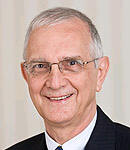
Etienne Denis
[Etienne Denis was appointed to the Board in February 2007. He holds a PhD in Science from the University of Louvain (UCL). After working at the university and with Gécamines in the DRC, he joined Umicore (formerly known as Union Minière) in 1974 where he held a number of management positions, including those of Managing Director of Union Zinc, Umicore Engineering and Sibeka until 2003. When he retired, Dr Denis became a board member of Umicore until mid-2005 when he moved to the board of Cumerio. He was a director of Adastra Minerals Inc. until 2006, when it was purchased by First Quantum Minerals. http://www.mwanaafrica.com/about/directors.asp ]

Director: Mwana Africa
Consider
Mwana Africa, a South African firm that controls the
Kilo-Moto gold fields in Zani, DRC. The Union of Congolese Patriots (UPC), led by Thomas Lubanga,
occupied the Zani gold fields in 2002 and stirred up ethnic animosities that
led to massive suffering and depopulation. However, according to Congolese
locals, it was the white missionaries from the
Africa Inland Mission
(
www.aimint.org/usa/where_we_work
) that deeply divided local ethnic groups.
French tycoons Jacques and Alvaro Hachuel own Mwana Africa.
Mwana Africa’s
European director, Etienne Denis, began his long career of impoverishing the
Congo at Umicore, formerly the Belgian mining giant Union Miniere, in 1974.
The Mwana Africa airstrip at Zani, and nearby roads, were built with USAID
backing, and the gold is flown out to Tanzania—one of the most
underappreciated criminal players funneling weapons to Uganda and Congo—or
sometimes shipped out by road through Uganda.[19] Mwana Africa is also
involved in Congo’s bloody MIBA diamond concessions in Mbuji Mayi and the
cobalt/copper concessions in Katanga. [20]
Similarly,
almost nothing in context has been reported of the white mercenaries and
their petroleum operations on the Uganda border with Orientale.[21] Like the
ongoing covert war in Darfur, where the backers of the "mysterious" rebel
groups are never exposed, the militias operating in Congo are proxy armies
that serve the interests of external power blocks at the expense of their
competitors.
Most reporting
from the Kivus zooms in on sexual violence and the Western media always
blames the victims—Congolese soldiers caught in the maelstrom of
international proxy warfare and organized crime—but we hear nothing about
U.S. or Canadian or Australian mining companies—and for those rare times
that we do the reportage de-links the mining from the mass murder.[22] More
often, the media turns the story upside down, claiming that responsible
Western mining executives are waiting in the wings for security to improve
so they can provide jobs and accountability and "sustainable development"
for the Congolese people. Nothing could be further from the truth.
A recent
front-page news feature, "Congo’s Riches, Looted by Renegade Troops," about
the Bisie tin mine in North Kivu, offers the perfect example. "On paper, the
exploration rights to this mine belong to a consortium of British and South
African investors who say they will turn this perilous and exploitative
operation into a safe, modern beacon of prosperity for Congo," wrote Jeffrey
Gettleman for the New York Times. "But in practice, the consortium's
workers cannot even set foot on the mountain. Like a mafia, Colonel Matumo
and his men extort, tax and appropriate at will, draining this vast
operation, worth as much as $80 million a year."[23]
And thus do
the valiant white knights of the New York Times shine their spotlight
on plunder and extortion in Congo. Alas, it is a selective shining, an
expedient "humanitarian" concern, and an arrogant moral high ground. Indeed,
it is just another shade of the black and white race politics behind the
politicization of the International Criminal Court.
[2008
Dec]
Merchants of Death: Exposing Corporate-financed Holocaust in Africa.
White Collar War Crimes, Black African Fall Guys
by Keith Harmon Snow